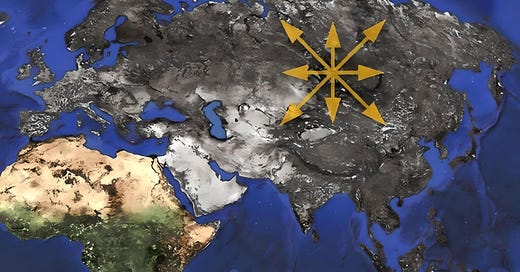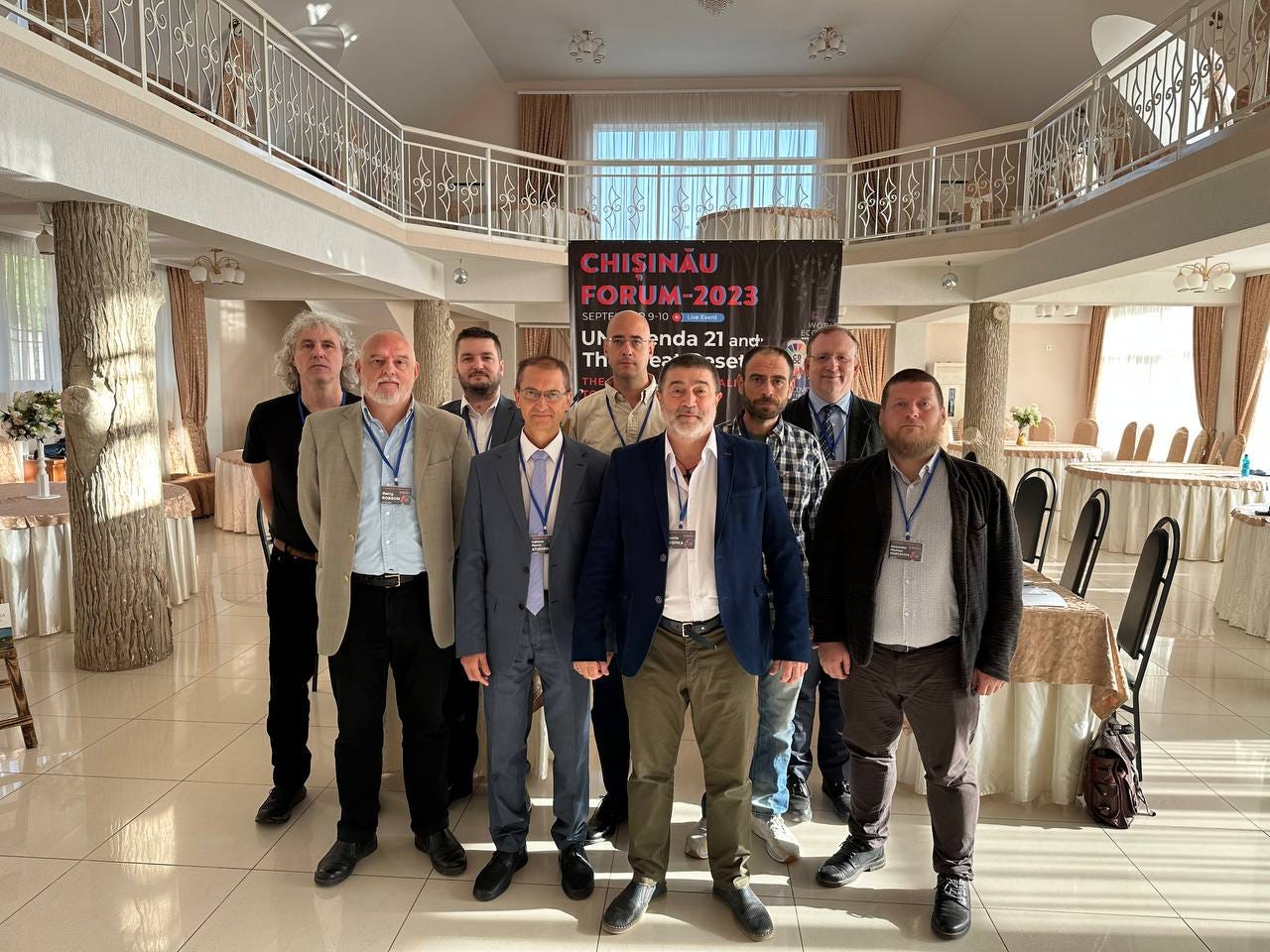Alexander Markovics offers an insightful exploration into the resistance against globalisation, as he shares his experiences from the Chisinau Forum, a gathering that challenged the dominant globalist narrative and showcased alternative perspectives from across the world.
It Is Not Only the Globalists Who Can Network
Atlantic Bridge, World Economic Forum, Bilderberg – all around the world, globalisation forums are held that promote liberalism, mass immigration, and transhumanism for all nations. Not least by German elites, these meetings are also keenly attended to demonstrate unwavering loyalty to the globalist project. Everywhere in the world? No, in the Eastern European country of Moldova, an anti-Globalisation Forum took place from 9 to 10 September 2023, the now fourth edition of the Chisinau Forum, named after the Moldovan capital. That was reason enough for me to participate in this forum and share some impressions.
Chisinau Forum: Battle against Agenda 21 and the Great Reset
The conference’s title was “Agenda 21 and the Great Reset: The Fall from Liberalism to Technocracy.” Organised by the director of the People’s University, Iurie Roșca, who has been part of the resistance against globalisation since the days of communism, the forum took place for the first time after 2019 following a long COVID-induced hiatus. Worth highlighting in this context is also the help of Peter Töpfer in organising the event, assisting Rosca in technical matters among other things. As part of a “special metapolitical operation,” 33 thinkers from around the world gathered at the forum. As the title of the event suggests, the focus of the Chisinau Forum was on the threat posed by the biopolitical measures of globalism. The speakers delved into the genesis of globalist policy: starting with the idea of population reduction, the report of the Club of Rome, and the economic restart through the Great Reset, the present thinkers subjected these ideas to critique.
A Special Metapolitical Operation
Among those present, across cultural and national boundaries, there was a unanimous opinion that the measures are not just an expression of liberalism but also a diabolical development directed against the divine order. Today, the science of cybernetics is used by intelligence agencies and governments to better control the nations. The ideas of transhumanism – the implantation of a chip into the brain via Neuralink – represent the culmination of previous dystopias to make humans slaves to the globalists. The speakers took it upon themselves to highlight these mechanisms and develop strategies against them: Pierre-Antoine Plaquevent focused on the influence of Soros’ Open Society Foundation on globalisation and its complicity in Agenda 21. Gille-Emmanuel Jaquet addressed the current geopolitical situation in the world, pointing out that the implementation of the Great Reset is primarily driven by the West, with Ukrainian society serving as an experimental field. The roots of this development for the control and alteration of the human body were also discussed: the Promethean view of humanity that recognises no boundaries for man. As an alternative, Alexander C. Thomson introduced the idea of a Christian society, which, in the sense of creation, reminds man to respect his boundaries and not to cross them. Raphael Machado appealed to “ride the tiger” and, in resisting postmodernism, not to let oneself be corrupted by it, but to fight against it without burning oneself out.
The Big Question: Are We Witnessing the Birth of a Multipolar World, or Do the Globalists Control Everything?
While there was consensus at the forum regarding the necessity to combat globalisation and transhumanism, there was dissent: does the multipolar world represent a counterpoint to the idea of the Great Reset, or are Putin and Xi Jinping in cahoots with Klaus Schwab? While Iurie Roșca held this view and justified his position with past lip-service by Russia and China to development goals and the fight against COVID, the Frenchman Lucien Cerise argued otherwise: military technologies, when viewed objectively, are always the consequence of civilian techniques; therefore, Russia, China, and Iran must build drones and advance computer technologies if they do not want to be forcibly delighted with rainbow flags and US hegemony. Moreover, the aggressive approach of globalist organisations such as the World Economic Forum under Klaus Schwab and the Open Society Foundation under Soros against these countries shows that the globalists themselves want to preserve the unipolar order, categorically ruling out any transformation into a multipolar order.
Conclusion: An Essential Networking Forum for the Anti-Globalist Resistance and a Multipolar World
In summary, the forum can be described as a successful networking meeting of the anti-globalist resistance, particularly distinguished by the quality of the speeches. The participation of Latin American activists such as Lucas Leiroz, Carlos Mamani, and Raphael Machado demonstrated that the idea of multipolarity is intellectually highly productive, and Germans can also learn from Latin Americans.






